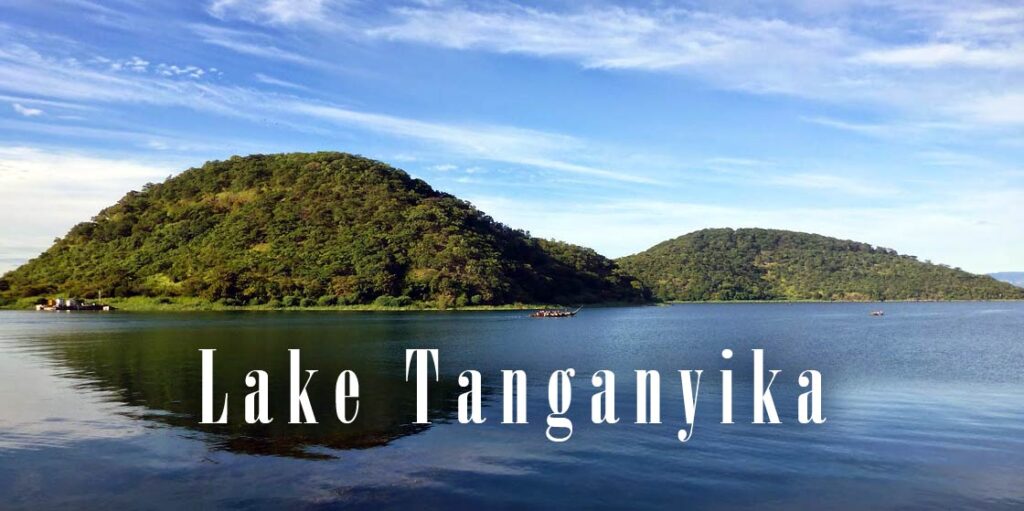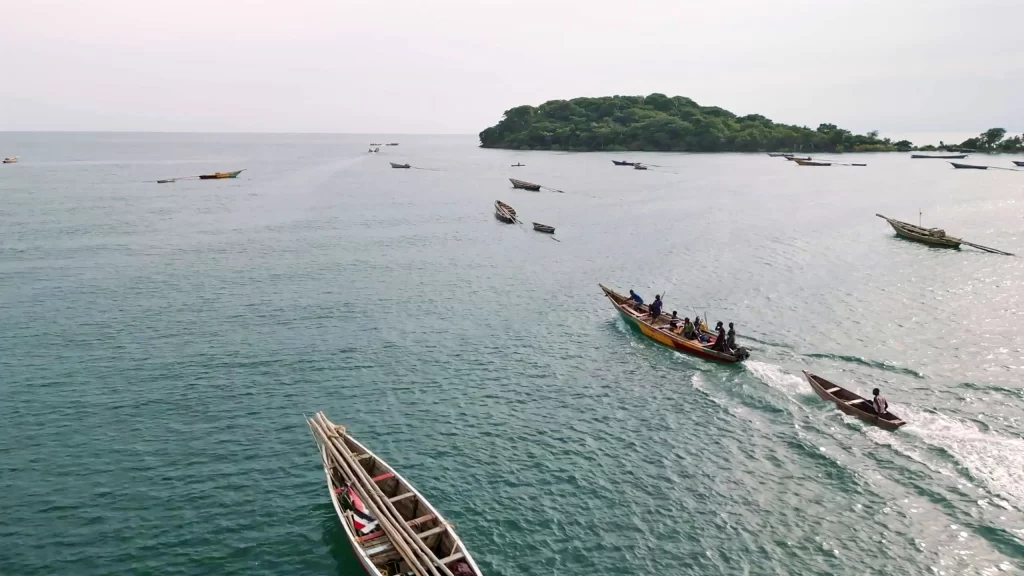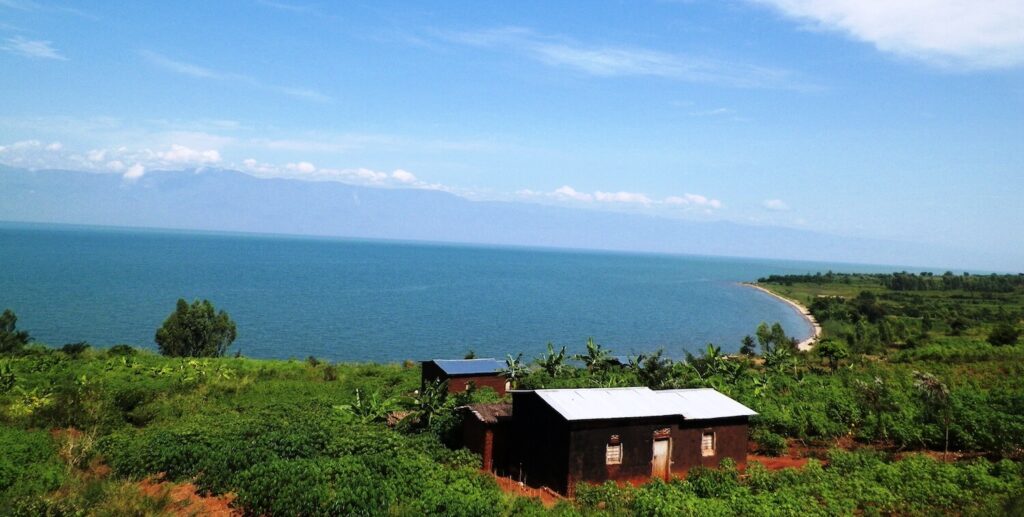Lake Tanganyika
Lake Tanganyika, a prominent African Great Lake, is notable for its remarkable biodiversity and essential contribution to the ecology and economy of the adjacent areas. This essay will examine Lake Tanganyika’s ecological significance, its socio-economic effects on local communities, its historical relevance, and the difficulties and opportunities it confronts moving forward.
Situated in East Africa, Lake Tanganyika is the world’s second deepest lake and one of its oldest, estimated to be approximately 9 million years old. This lake spans four countries—Burundi, the Democratic Republic of the Congo, Zambia, and Tanzania—and serves as both a natural marvel and an essential freshwater resource. The lake’s distinctive habitat harbors an extraordinary diversity of fish species, many of which are endemic, indicating they exist just in this location. Lake Tanganyika’s great biodiversity renders it a site of significant ecological importance.

Permanent adventures along Lake Tanganyika
Angling is among the most favored pursuits in Lake Tanganyika. The lake is renowned for its abundant fish species, particularly the diverse cichlids, which are prized for culinary purposes and the aquarium industry. Local fisherman frequently utilize traditional techniques, and visitors may participate in fishing excursions to acquire knowledge from the locals and engage in a fulfilling experience. The optimal period for fishing at Lake Tanganyika generally occurs from May to September, coinciding with the dry season when water levels stabilize and fish populations flourish. This period offers optimal weather conditions for prolonged fishing excursions.
Snorkeling and diving offer an additional array of exhilarating experiences for guests. The transparent waters of the lake offer exceptional visibility, enabling divers to engage with the lively aquatic ecosystem. The optimal period for these activities often occurs from June to September, aligning with the dry season when the lake’s waters are tranquil and transparent. In cities including as Bujumbura, Kigoma, and Mpulungu, dive shops and travel companies provide guided tours that highlight the lake’s concealed treasures. Collaborating with local diving instructors increases the diving experience while promoting cultural interaction and mutual respect for the lake’s nature.

Hiking around the lake’s picturesque shoreline offers a unique viewpoint of the region’s natural splendor. Numerous pathways direct hikers through scenic landscapes, verdant flora, and the backdrop of adjacent mountains. Optimal hiking conditions arise when temperatures are cooler, generally between May and September. Hikers can engage with the indigenous flora and animals while also visiting secluded settlements to gain insights into the local culture and traditions. Prominent individuals like Dr. Thomas G. P. R. Graham have emphasized the significance of ecotourism in fostering sustainable practices inside these communities, guaranteeing that tourism advantages both residents and the ecosystem.
Cultural experiences, such as indigenous music, dancing, and cuisine, enhance the visit to Lake Tanganyika. Festivals and local markets attended by visitors exhibit the cultural legacy of the villages surrounding the lake. Engaging in these activities enables visitors to acquire a more profound comprehension of the local way of life. Collaborating with community leaders or cultural ambassadors can enhance this experience, underscoring the relationship between cultural identity preservation and tourism promotion.
Boat Cruise on Lake Tanganyika: An Indelible Experience
A boat tour on Lake Tanganyika presents an experience that combines natural beauty with cultural depth, rendering it an enticing option for travelers in pursuit of adventure and tranquility. As one of the largest and deepest lakes globally, it extends over 600 kilometers across four African nations. A boat tour here enables visitors to observe the breathtaking landscapes, varied fauna, and distinctive cultures that thrive around the lake.
A compelling reason to undertake a sail on Lake Tanganyika is the chance to witness its stunning landscapes. The lake is encircled by verdant hills and precipitous mountains, forming scenic vistas that transform with the sun’s ascent and descent. Passengers frequently experience spectacular vistas, including vibrant sunsets that shimmer on the water’s surface, creating an ideal environment for photography or appreciating the serenity of nature. The transparent waters of the lake permit observations of various fish species, some of which are peculiar to the lake. The amalgamation of natural beauty and animals renders the voyage both enchanting and informative.
The well-being of Lake Tanganyika is intricately linked to the sustenance of communities residing along its banks. Fishing serves as a fundamental source of income and nourishment for millions. In recent years, the lake has substantially contributed to local economy, with fish catches comprising a significant amount of the population’s nutritional protein. Furthermore, the lake facilitates agriculture via irrigation and supplies water for residential use. The growing human population and economic activity in the region provide significant dangers to its ecosystem. Unsustainable fishing practices, pollution, and alien species have jeopardized the fragile equilibrium of the ecosystem.
In examining the socio-economic ramifications, a prominent individual is Dr. John W. C. Cohen, a notable ecologist and environmentalist who has devoted considerable effort to the research and conservation of Lake Tanganyika’s biodiversity. His research has underscored the pressing necessity for sustainable fishing practices and the significance of safeguarding the lake from overfishing and ecological deterioration. Cohen’s endeavors have contributed to heightened awareness of the socio-political concerns confronting local populations, including poverty and governance issues.
The historical importance of Lake Tanganyika is undeniable. The lake has been essential for trade and transportation for generations. Historically, it functioned as a conduit for explorers and traders in the 19th century, connecting many cultures and civilizations. The legacy of colonialism in this region has perpetuated enduring impacts on the governance and socio-economic frameworks surrounding the lake. Comprehending this past elucidates the contemporary issues encountered by local people, including disputes around fishing rights and resource management.
Climate change poses a substantial threat to Lake Tanganyika’s challenges. Increasing temperatures and changed weather patterns impact the lake’s water levels and fish populations. These alterations may lead to a diminished fishing production, so directly affecting the local economy and food security. Moreover, environmental degradation resulting from deforestation and agricultural runoff intensifies the issue by adding contaminants into the lake.
Nevertheless, efforts to alleviate these issues are underway. Regional collaboration is crucial for the sustainable management of Lake Tanganyika due to its transnational nature. The Lake Tanganyika Authority, created by the bordering nations, seeks to enhance cooperation and conservation initiatives. Initiatives encompass establishing fishing regulations, advocating for sustainable practices, and performing research to assess the lake’s health. These actions are essential for guaranteeing that future generations can utilize the natural riches of Lake Tanganyika.
It is essential to have a diversified perspective regarding the future of Lake Tanganyika. Augmented community involvement in conservation initiatives is essential. Local communities ought to be actively engaged in decision-making processes pertaining to resource management. Educational and awareness initiatives centered on sustainable practices might enable residents to assume responsibility for conservation efforts.

Furthermore, international cooperation must be enhanced. International collaborations can offer financial resources, specialized knowledge, and technical aid to address urgent challenges related to the lake. Entities like the United Nations and numerous NGOs may significantly contribute to fostering these partnerships, guaranteeing the inclusion of local populations’ perspectives in global discussions regarding conservation and development.
Lake Tanganyika embodies a multifaceted interaction of ecological importance, socio-economic dependence, historical background, and prospective opportunities. The biodiversity is a valuable asset that must be protected from the threats of human activity and climate change. With prominent advocates such as Dr. Cohen championing sustainability, the lake’s future appears promising. Through the advancement of regional cooperation, community involvement, and international collaboration, a trajectory toward a sustainable future for Lake Tanganyika and the millions reliant on its resources can be established. The conservation of this extraordinary ecosystem is not merely an environmental concern; it is a question of socio-economic survival for numerous individuals. The significance of safeguarding Lake Tanganyika is paramount, and coordinated efforts are essential for its future vitality and sustainability.
